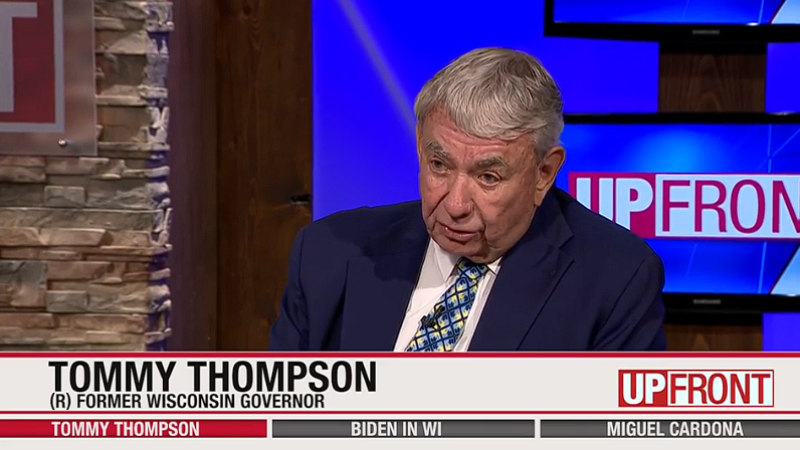Former Wisconsin Gov. Tommy Thompson says Donald Trump must campaign in Dem-dominated Dane and Milwaukee counties ahead of Election Day in order to win Wisconsin.
"They've got to reduce the Democratic votes in Dane County," Thompson said on WISN's “UpFront,” produced in partnership with WisPolitics. "Number two, they've got to go to Serb Hall and have a rally. And just like before your time, Ronal...
Please log in to access subscriber content.
If you don't have a subscription, please contact schmies@wispolitics.com for subscription options on the WisPolitics-State Affairs platform, which is the new home for WisPolitics subscriber products.


